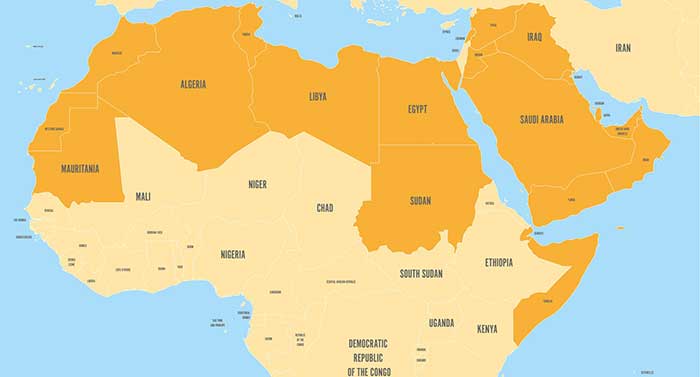Algeria, China, Upgrade And Extend Belt & Road Initiative Development Plans
Algeria and China signed an executive plan on Monday (December 5) for the joint development of the Belt and Road initiative, the Ministry of Foreign Affairs in Algiers has announced. A second agreement was signed regarding cooperation in “important areas” between the two countries extending until 2024.
“The executive plan is another building block for the further deepening and enhancement of cooperation within the framework of the Belt and Road initiative, which the country joined in 2018,” explained Foreign Minister Ramtane Lamamra. The minister signed the new deal along with the chairman of the National Development and Reform Commission of China, Khou Lifang during an online ceremony.
This agreement follows a second 5-year strategic cooperation pact with China that was signed last month. That included bilateral cooperation in different fields, including economy, industry, energy, space and culture, and was signed by Lamamra and his Chinese counterpart Wang Yi. Algeria has been coordinating its National Development Plan with China’s Belt & Road Initiative since 2021.
China has been the main exporter to Algeria since 2013, displacing France, which had monopolized the trade for decades. Beijing is now the lead trading partner of Algeria, North Africa’s “sleeping giant.” It is the region’s largest economy and an important gas- and oil-exporting country. Current bilateral trade is running at about US$8 billion, with Chinese exports to Algeria at US$7 billion and Algerian exports to China approximately US$1.2 billion. However, China is active in BRI projects in Algeria and North Africa which will over time redress the trade imbalance.
The main products that Algeria exports to China are energy related and include refined and crude petroleum and petroleum gas. The main products that China exports to Algeria are rubber-based products (auto tires, footwear) and communications equipment.

In terms of market size, Algeria has the tenth largest proven natural gas reserves globally, is the world’s sixth-largest gas exporter, and has the world’s third-largest untapped shale gas resources. Algeria is a member of OPEC, which also includes Congo, Ecuador, Equatorial Guinea, Gabon, Iran, Iraq, Kuwait, Libya, Nigeria, Saudi Arabia, the UAE and Venezuela, as well as the Arab Trade Zone which also includes Bahrain, Egypt, Iraq, Jordan, Kuwait, Lebanon, Libya, Morocco, Oman, Palestine, Qatar, Saudi Arabia, Sudan, Syria, Tunisia, the UAE and Yemen.
Algeria is also a member of the African Continental Free Trade Agreement (AfCFTA) which reduces tariffs to zero on 98% of all intra-African trade. This means that savvy investors can establish a manufacturing plant in one of Algeria’s free trade zones, collect component parts from across Africa, add these to duty-free imported foreign components to form a finished product, then either resell this onto the African market (when import duty on component parts then becomes due) or export to other global markets. Algeria has Free Trade Agreements with the AfCFTA and the Arab Trade Zone. It is not, however, a member of the World Trade Organisation.
With Chinese involvement, Algerian trade with the Middle East and Central Asia can be expected to increase in coming years as infrastructure improves. Algeria has also recently applied to join the BRICS grouping.
Related Reading





